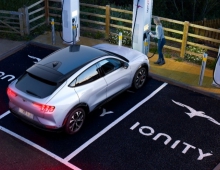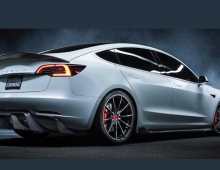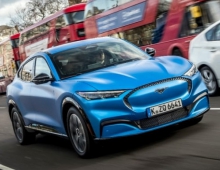
Ford to Cut 12,000 Jobs in Europe, Promises New EVs and SUVs
Ford is launching a new business model and fresh vehicle line-up as part of the largest redesign in the history of its business in Europe.
The company also is on track to improve its financial results in Europe this year, paving the way to sustainable profitability and its longer-term goal of delivering a 6% EBIT margin.
“Ford will be a more targeted business in Europe, consistent with the company’s global redesign, generating higher returns through our focus on customer needs and a lean structure,” said Stuart Rowley, president, Ford of Europe. “Implementing our new strategy quickly enables us to invest and grow our leading commercial vehicle business and provide customers with more electrified vehicles, SUVs, exciting performance derivatives and iconic imported models.”
The company's new European operating model and resulting organization are effective July 1. Ford said that there will be three new business groups – Commercial Vehicles (CVs), Passenger Vehicles (PVs) and Imports. Each has a dedicated management organisation including leaders responsible for marketing, manufacturing and product development.
Ford intends to grow its leadership as the top-selling CV brand in Europe, including leading the pickup segment, and to double its CV profitability in Europe in the next five years. This growth will be supported by its strategic alliance with Volkswagen, its Ford Otosan joint venture in Turkey and a restructured Ford Sollers joint venture in Russia.
The Passenger Vehicles group will lead a future portfolio of European-built cars and SUVs.
Cross-functional project teams are dedicated to running each vehicle nameplate, empowered to adjust design and manufacturing to focus on customer needs. European passenger vehicle development, including battery electric vehicles, will be centred in Cologne-Merkenich.
The Imports group will comprise a niche portfolio of passenger vehicles including Mustang, Explorer and an all-new Mustang-inspired fully electric performance utility coming in late 2020. Ford expects to more than triple passenger vehicle imports into Europe annually by 2024.
Ford is freshening and expanding its vehicle line-up in Europe, introducing at least three new nameplates in the next five years as it continues to grow its utility vehicle portfolio, including the all-new Mustang-inspired fully electric performance utility. The new nameplates are in addition to all-new Kuga, Puma and Explorer Plug-In Hybrid coming by early 2020.
Fuel economy improvements and CO2 reductions are being realised through improvements in conventional powertrains, country-specific vehicle portfolio management and a broad range of new hybrid and full electric propulsion choices.
Every new Ford passenger vehicle nameplate will include an electrified option. A future family of battery electric vehicles will be assembled in Europe.
Ford has already proposed or confirmed the closure or sale of six assembly and component manufacturing plants by the end of next year:
- Proposed closure of Bridgend Engine Plant in South Wales
- Closure of Ford Aquitaine Industries Transmission Plant in France
- Closure of Naberezhnye Chelny Assembly, St. Petersburg Assembly and Elabuga Engine Plant in Russia
- Sale of the Kechnec Transmission Plant in Slovakia to Magna
As a result, Ford’s manufacturing footprint in Europe will be reduced to a proposed 18 facilities by the end of 2020, from 24 at the beginning of 2019. In the U.K., the Ford of Britain and Ford Credit Europe headquarters in Warley also will close later this year and operations consolidated in Dunton.
In addition, Ford is implementing shift reductions at its assembly plants in Saarlouis, Germany, and Valencia, Spain, as well as a more streamlined management structure and marketing and sales operations.
In total, approximately 12,000 jobs will be impacted at Ford’s wholly owned facilities and consolidated joint ventures in Europe by the end of 2020, primarily through voluntary separation programs. Around 2,000 of those are salaried positions, which are included among the 7,000 salaried positions Ford is reducing globally.





















